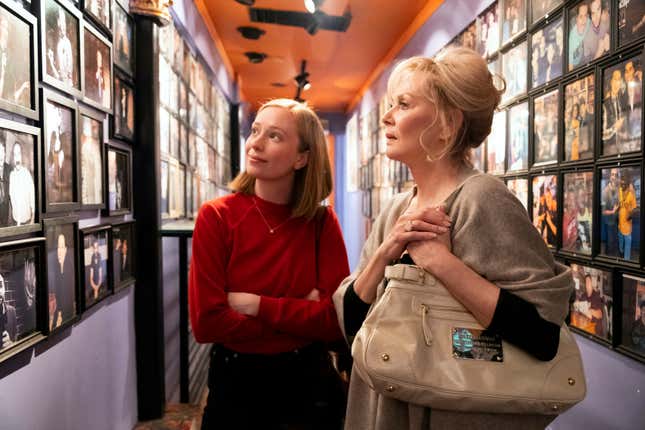In Hacks, Women Don’t Need a Redemption Arc
Jean Smart and Hannah Einbinder have made some of the most subtly original characters on television
EntertainmentTV
Photo: Anne Marie Fox/HBO Max
In the opening episode of Hacks, HBO’s comedy about the relationship between two women comedians, one at the beginning of her career and one coming to the end, Gen Z wunderkind turned social media pariah Ava asks her long-suffering agent, “Where’s the line?” between being “unfiltered and honest” and just being an unlikeable cunt. Hacks is a show about testing that line, pushing audiences to get over their shit about unlikable women characters. Jean Smart’s Deborah Vance, a legendary woman stand-up whose legend is wearing a little thin, and Hannah Einbinder’s Ava consistently refuse to buff their edges, instead offering foul-mouthed and frank portrayals of incredibly funny women who also aren’t very good people, two character traits that are exceedingly rare for women leads.
Two of the most talked-about bestselling novels of the early 2010s, Gillian Flynn’s Gone Girl and Lauren Groff’s Fates and Furies, both relied on the same trick to get around readers’ resistance to women main characters who weren’t “likable.” Each created idealized versions of women heroines—beautiful, grounded, wide-eyed, and innocent—then trashed their own construction of these women midway through the book, revealing their heroines to be anti-heroines: cold, calculating, capable, and completely obsessed with controlling their destinies to the point of monomania. All the hallmarks of an unlikeable woman at the center of a likable shell. These shells were in service of the plot, but they were also a sugar-coating necessary to get the reader to swallow a woman who was more like a Goodfella than a Steel Magnolia.
And while the ruse worked beautifully, both in terms of crafting surprising narratives and sidestepping the demands we make on women leads to be “relatable,” it’s maddening that the flip side of constant lip-service to the idea women can do anything is that each woman is uniquely good in her own way. Hacks, refreshingly, offers no such promises. Ava is spoiled, self-obsessed, and newly canceled for an ill-advised tweet. Her girlfriend has left. Her former friends call her a self-serving opportunist. But Hacks isn’t a show about Ava becoming less of an asshole, it’s a show about doubling down on the characterization by giving her a soulmate in veteran Boomer comedian Deborah Vance.
-

-

-

-

-

-

-

-

-

-

-

-

-

-

-

-

-

-

-

-

-

-

-

-

-

-

-

-

-

-

-

-

-

-

-

-

-

-

-

-








































